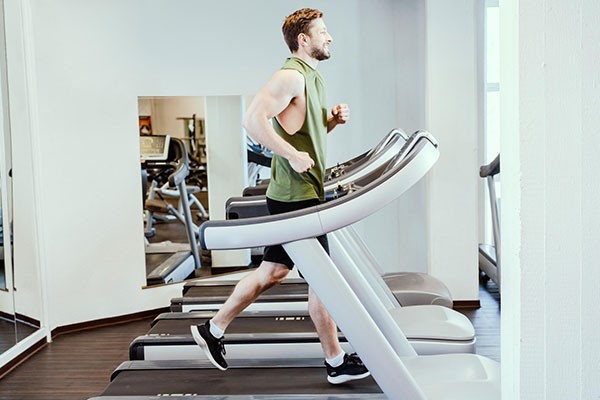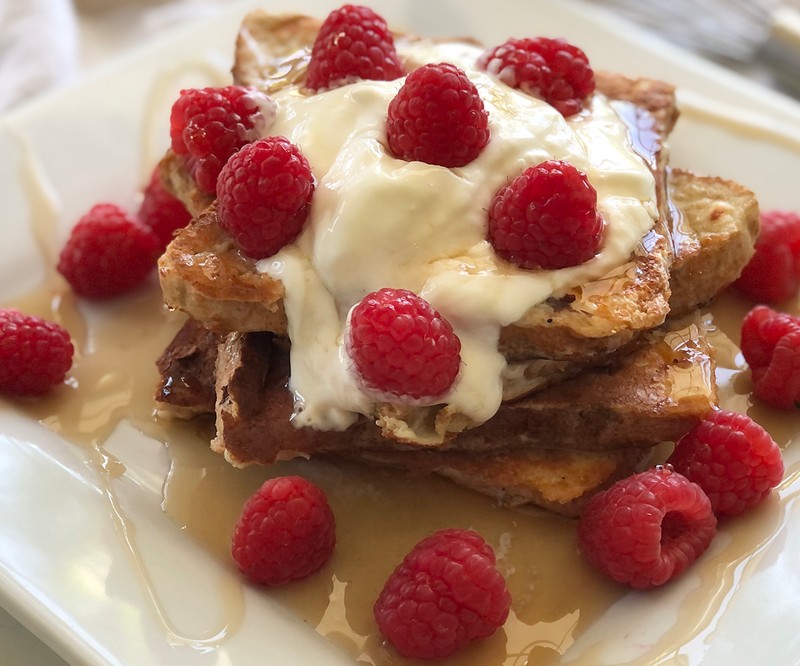What's the deal with cardio? Do we burn actual body fat?

How does cardio burn fat?
Some people will tell you it doesn't. Others will say it does. So who's right?
Well, science is.
Here are the four sources our body uses as fuel during cardio (which varies depending on how hard our hearts are working):
- From within the muscle, we can use stored carbohydrates (scientists call this glycogen)
- Also from within the muscle, the fat stored within there (called intramuscular triglycerides)
- From outside the muscle, blood glucose, which is used from the gut after we eat carbohydrates
- Free fatty acids, which comes from your body fat (aka adipose tissue triglyceride stores)
So can you see point number 4?
This means we CAN burn body fat during cardio! So that clears that up.
But how do we prioritise that?
Well, here's how the different aerobic intensities use fat as a source of fuel:
- Up to ~100% (of maximal oxygen uptake (VO2max) - Carbohydrates are the dominant fuel source
- Greater than 85-90% VO2max - Carbohydrates are still the dominant fuel source
- 65-75% VO2max - Fat is the dominant fuel source
- ~40-65% VO2max - Fat is the dominant fuel source
- Less than 40% VO2max - Fat is the dominant fuel source
Great! So there you have it!
Just train at anywhere from 0-65% of your VO2 max, and you'll lose more fat than the person sweating it out at a higher intensity! Right?
NO!
Here's how fitness myths get born: people take a SMALL PIECE of this picture and claim it's the WHOLE PICTURE. And once people have made up their minds, well, they've made up their minds, and they're never changing ‘em back.

So what gives? Why can't you just burn more fat at a lower intensity and laugh at those HIIT suckers giving it their all? Why is the world so cruel?
Three reasons:
- Because whether or not you're using fat or carbs as a fuel source during your cardio, in recovery, your body burns fat to provide energy to help you recover!
- Whether you chose to prioritise "fat burnt" during lower-intensity exercise or carbs burnt during higher intensity exercise, research shows that after 24 hours, the amount of fat burnt (because of point number 1) is the same!
- If you're not eating in a calorie deficit (eating fewer calories than you burn) then none of this makes a damn difference.
Let's bring in some scientists here:
"In addition, fat oxidation contributes energy during recovery from exercise."
So here's the brutal truth: low-intensity exercise or higher doesn't matter for fat loss.
What matters is that you're in a calorie deficit and that you burn your desired amount of calories (for example, 200 calories) from whichever range of your VO2max you like.
And you'd be amazed at how many people don't know this.
Want to see this in action? Knew it.
This study looked at how these well-trained cyclists used different fuel sources for different exercise activities. But none of this will surprise you, because you're basically an expert on this topic now.
Take a look at the graph click here.
Graph from this study.
To make this easier to follow, the red represents carbs within the muscle, the blue represents fat within the muscle, the yellow is body fat burnt, and the green is carbohydrates from the gut (blood glucose).
And you can see how the red (carbs) is used the higher our VO2 max is, and how body fat (yellow) is used more during lower-intensity exercise.
So that's it in action.
But if weight loss is your goal, cardio is not magical. This is the other key point.
Whether you create a calorie deficit for weight loss from diet, or diet and or exercise, the fat loss results are the same.
Does eating before or after cardio really makes any difference to our fat loss goals.
The bottom line on cardio intensity to burn body fat
Is that, yes, cardio does directly burn body fat. And it does so preferably at lower intensity bouts of your VO2 max, whilst higher intensity exercise favours the use of carbohydrates for fuel. But after 24 hours, the fat loss results during both bouts are the same, because the body uses fat to recover from exercise, too. Neither a higher intensity VO2 max nor a lower one is better for fat loss. What really matters is that you're in a calorie deficit and that you chose the type of cardio that suits you and your lifestyle more.
References:
- Spriet LL. Randell RK. REGULATION OF FAT METABOLISM DURING EXERCISE. Sports Science Exchange (2020) Vol. 33, No. 205, 1-6.
- Strasser B, Spreitzer A, Haber P. Fat loss depends on energy deficit only, independently of the method for weight loss. Ann NutrMetab. 2007;51(5):428-32. doi: 10.1159/000111162. Epub 2007 Nov 20. PMID: 18025815.
- Melanson EL, Sharp TA, Seagle HM, Horton TJ, Donahoo WT, Grunwald GK, Hamilton JT, Hill JO. Effect of exercise intensity on 24-h energy expenditure and nutrient oxidation. J Appl Physiol (1985). 2002 Mar;92(3):1045-52. doi: 10.1152/japplphysiol.00706.2001. PMID: 11842038.
- Romijn, J.A., E.F. Coyle, L.S. Sidossis, A. Gastaldelli, J.F. Horowitz, E. Endert, and R.R. Wolfe (1993). Regulation of endogenous fat and carbohydrate metabolism in relation to exercise intensity and duration. Am. J. Physiol. 265:E380-391.

















































